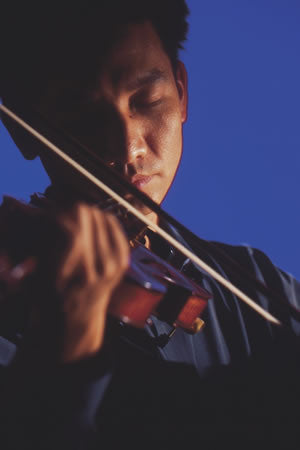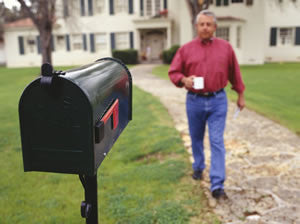How To Use Your Whole Brain: Redefining The Notion Of Who YOU Are
I learned something very interesting about the difference between my conscious mind and my unconscious mind while taking my 16-year old daughter to her first driver's education class. In order to sign her in and pay for the course, I needed to show her learner's permit, which my daughter had handed me moments before. When I saw her a few minutes later, naturally she asked for it back. I looked in my pockets and then in my wallet and it wasn't there. I asked the person at the registration desk and she didn't have it either.
 I started feeling a little stressed at this point because I couldn't imagine how I could possibly have lost her driver's permit in so little time. I checked my pockets again and the floor between where I'd signed in and sat down. Since I was only putting the license away temporarily, I assumed that it would be in the most obvious place, like a pocket or the billfold of my wallet. Having checked everywhere in my wallet twice, I decided to look in the one slot I hadn't checked at all; where I put MY license.
I started feeling a little stressed at this point because I couldn't imagine how I could possibly have lost her driver's permit in so little time. I checked my pockets again and the floor between where I'd signed in and sat down. Since I was only putting the license away temporarily, I assumed that it would be in the most obvious place, like a pocket or the billfold of my wallet. Having checked everywhere in my wallet twice, I decided to look in the one slot I hadn't checked at all; where I put MY license.
Now, the reason, I didn't look there first, is it takes some effort to slide a license into that back (semi-permanent) slot and I didn't think I was capable of storing it there without REMEBERING that I had done it. And of course that's exactly where I found it.
When my daughter asked me why I hadn't looked there first, I explained that I had put her permit away unconsciously - but I was looking for it consciously. In other words, my conscious mind (which is the part of my brain that was doing the looking) thought that - since I was only putting it away temporarily, I would have put it in the easiest place to find it. But I put the permit away, unconsciously, as if I was operating on autopilot.
The better we get at what we do, the more we delegate the supervision of what we do (even everyday tasks like putting your license away) to the unconscious mind. My conscious brain didn't need to think about putting away the license. I had done it without thinking every time I had to show it to a cashier at a grocery store or a TSA officer at an airport. So I put my daughter's permit away (which looked exactly like my license) the same way I had unconsciously put my own license away a thousand times before: without thinking about it.
The payoff for delegating the supervision of mundane tasks to the unconscious mind is enormous. When we multi-task like this our mind doesn't have to be cluttered with thoughts of how to move the various muscles involved when we walk or talk or drive to the grocery store or put away our license for the umpteenth time. The movements just happen.
 Imagine carrying a glass full of water in one hand and a tray of eight empty glasses in the other. You won't think about the FULL glass of water in your hand, you'll focus COMPLETELY on the eight EMPTY glasses on the tray. But your unconscious mind supervises the carrying of the one full glass and chances are, you'll make it to wherever you're going with those glasses without spilling a drop. This phenomenon clears space in the conscious mind to think about something more important, for example, like carrying the tray of eight empty glasses without breaking any, or strategizing where to hit the ball next in a game of tennis, or even how to avoid a collision with a car that suddenly swerves in front of you.
Imagine carrying a glass full of water in one hand and a tray of eight empty glasses in the other. You won't think about the FULL glass of water in your hand, you'll focus COMPLETELY on the eight EMPTY glasses on the tray. But your unconscious mind supervises the carrying of the one full glass and chances are, you'll make it to wherever you're going with those glasses without spilling a drop. This phenomenon clears space in the conscious mind to think about something more important, for example, like carrying the tray of eight empty glasses without breaking any, or strategizing where to hit the ball next in a game of tennis, or even how to avoid a collision with a car that suddenly swerves in front of you.
The reason I included the near-miss car accident in this list is that after an incident like this you often ask yourself: How did I avoid that collision? The reason you don't know the answer to this question is the central point of this blog and the five-part series of blogs that will follow. I suspect the answer is going to surprise you.
It's because of the narrow way in which you define yourself.
You think that YOU didn't do it because YOU didn't have to THINK about it. But your unconscious mind was taking everything in, and it knew exactly where every car was in relationship to yours: It computed your rate of speed, the direction you were traveling along with the trajectory of every other car in your line of sight, and the ones it had seen in the rearview mirror seconds before. It processed all that information instantaneously while prompting your hands and arms to move the steering wheel and your foot to apply the brake (or not apply the brake) in exactly the right sequence to avoid this accident. And because it ALL came from your unconscious mind, a territory of the brain we usually don't acknowledge or even want to know much about, you don't give yourself credit for doing it.
I was watching a toddler in an airport recently and she was still CONSCIOUSLY walking. She was using her conscious brain to orchestrate each step. You could see it in how high she was raising her feet every time she made a super wobbly and (for her size) giant step forward. These are the baby steps of the beginner. Steps we all have to take in the development of ANY new skill: Where the conscious mind is working overtime, and the unconscious mind hasn't yet taken up ANY of the slack.
But eventually we become experts: at walking, at talking, at driving and many other things. The more expert we get at that skill, the more of what we do is orchestrated by the unconscious, freeing up conscious brain power for doing other things that can (in some cases) enhance our performance even more.
 Elite athletes and performers achieve their elite status by practicing thousands and thousands of hours (the number of hours that is usually quoted is between 25,000 and 50,000). They don't have to think about what they are doing. It's all committed to muscle memory which of course is controlled by the unconscious mind. Thus they can add a level of interpretation or artistry or strategy to their performance that another person who practices less, just can't.
Elite athletes and performers achieve their elite status by practicing thousands and thousands of hours (the number of hours that is usually quoted is between 25,000 and 50,000). They don't have to think about what they are doing. It's all committed to muscle memory which of course is controlled by the unconscious mind. Thus they can add a level of interpretation or artistry or strategy to their performance that another person who practices less, just can't.
The latest research in brain science backs this up. Modern brain scanning technology shows us that when an expert performs a task we see a modest amount of activity in the brain. (In other words, by how much area of the brain lights up on an MRI [brain scan] we know that the task doesn't require that much brain power.) But when a novice performs the same task, there is a LOT of activity in the brain.
One need only think of driving to prove the point. When my sixteen year old daughter and I go out for a driving lesson, she sits forward in the seat, her eyes open wide, and all her attention is required to perform an act she will someday do without even thinking. At that point her driving skills will be relegated to the work of the unconscious mind.
Working with, and recognizing the power of the unconscious mind, or what David Brooks, in his excellent book THE SOCIAL ANIMAL calls, Level 1 awareness is a key to expanding our effectiveness as human beings. Brooks quotes a long deceased Harvard professor and mathematician Alfred North Whitehead who once said, "civilization advances by extending the number of operations we can perform without thinking about them."
So it wasn't until I took a deliberate, slow, deep breath, (and this part or the process is crucial for accessing the information in the unconscious mind) and consciously reminded myself that I couldn't possibly have lost my daughter's permit in so little time that my unconscious mind kicked in with a clue: Check the slot where you put your license. I knew this clue was coming from my unconscious mind because, even while I searched there, my conscious mind was saying: it's not in there, stupid. It doesn't make sense; you wouldn't have put it there in the first place.
So I literally had to relax a bit (take that deep breath) in order to break through the static in my conscious mind and access the information in my unconscious mind. And this is why when we're stressed we're not very good at creative problem solving. There's just so much static that we don't have access to the lower, deeper, creative parts of our brain. Interestingly, whenever you misplace something chances are your unconscious mind knows exactly where you left it. Because it WAS working even while the part of your brain you perceive as YOU was doing something else, like, in my case, talking about the unseasonably warm weather with the person at the sign-in desk.
 Of course when the answer appears in the conscious mind, we usually think it emanates from there, too. Because we haven't learned to recognize HOW the "mail" gets delivered there or WHERE it comes from. It's either in the box or it isn't. And this is a fabulous metaphor because your mailbox here represents the size and power and holding capacity of your conscious mind, or what neuroscientists call "working memory." But THE ENTIRE POSTAL SYSTEM and EVERY letter in it, represents the power and holding capacity of your unconscious mind.
Of course when the answer appears in the conscious mind, we usually think it emanates from there, too. Because we haven't learned to recognize HOW the "mail" gets delivered there or WHERE it comes from. It's either in the box or it isn't. And this is a fabulous metaphor because your mailbox here represents the size and power and holding capacity of your conscious mind, or what neuroscientists call "working memory." But THE ENTIRE POSTAL SYSTEM and EVERY letter in it, represents the power and holding capacity of your unconscious mind.
It's time to ask yourself an important question: Do you want to settle for a little mailbox mind or do you want to have access to the entire system? And that is the central point of this whole six-part series of blogs. So what's really exciting is that now, with our new understanding of how the brain works, the choice really is yours.
Knowing how those deliveries are made and how to gain access to your unconscious brain's superior processing power has the potential to yield some impressive benefits: The ability to make snap judgments when you need them, read other peoples facial expressions in split second, interact with others more effectively and make heart-felt decisions that you know are right.
What's really exciting here is that now we can begin to engage the unconscious mind in ways we never thought possible before. (I'll talk specifically about how to do this in future blogs.) More importantly, our whole notion of who we are as individuals no longer needs to be limited by that ever-so-pessimistic voice in our heads that seems to doubt everything that we do. And finally, it's a whole new ballgame because when we're talking about how WE operate, everyone gets a turn at bat. And, who knows, you might just connect with this idea in a big way, and hit the ball right out of the park.





James Porter
Author